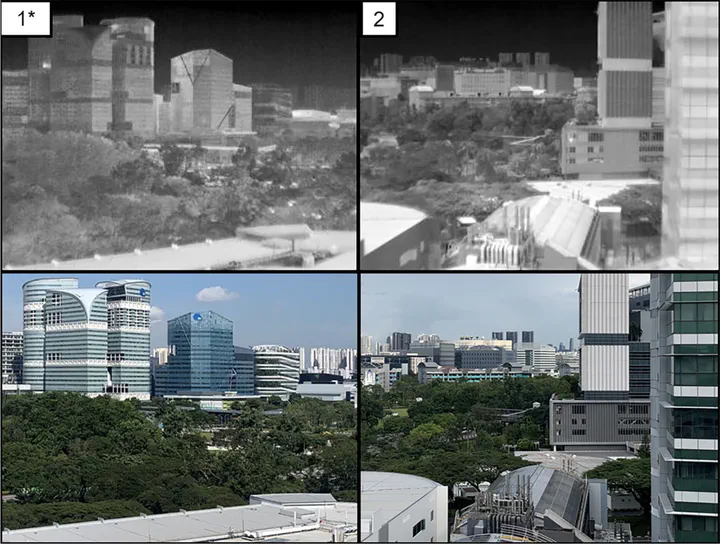District-scale surface temperatures generated from high-resolution longitudinal thermal infrared images

Abstract
This paper describes a dataset collected by infrared thermography, a non-contact, non-intrusive technique to acquire data and analyze the built environment in various aspects. While most studies focus on the city and building scales, an observatory installed on a rooftop provides high temporal and spatial resolution observations with dynamic interactions on the district scale. The rooftop infrared thermography observatory with a multi-modal platform capable of assessing a wide range of dynamic processes in urban systems was deployed in Singapore. It was placed on the top of two buildings that overlook the outdoor context of the National University of Singapore campus. The platform collects remote sensing data from tropical areas on a temporal scale, allowing users to determine the temperature trend of individual features such as buildings, roads, and vegetation. The dataset includes 1,365,921 thermal images collected on average at approximately 10-second intervals from two locations during ten months.